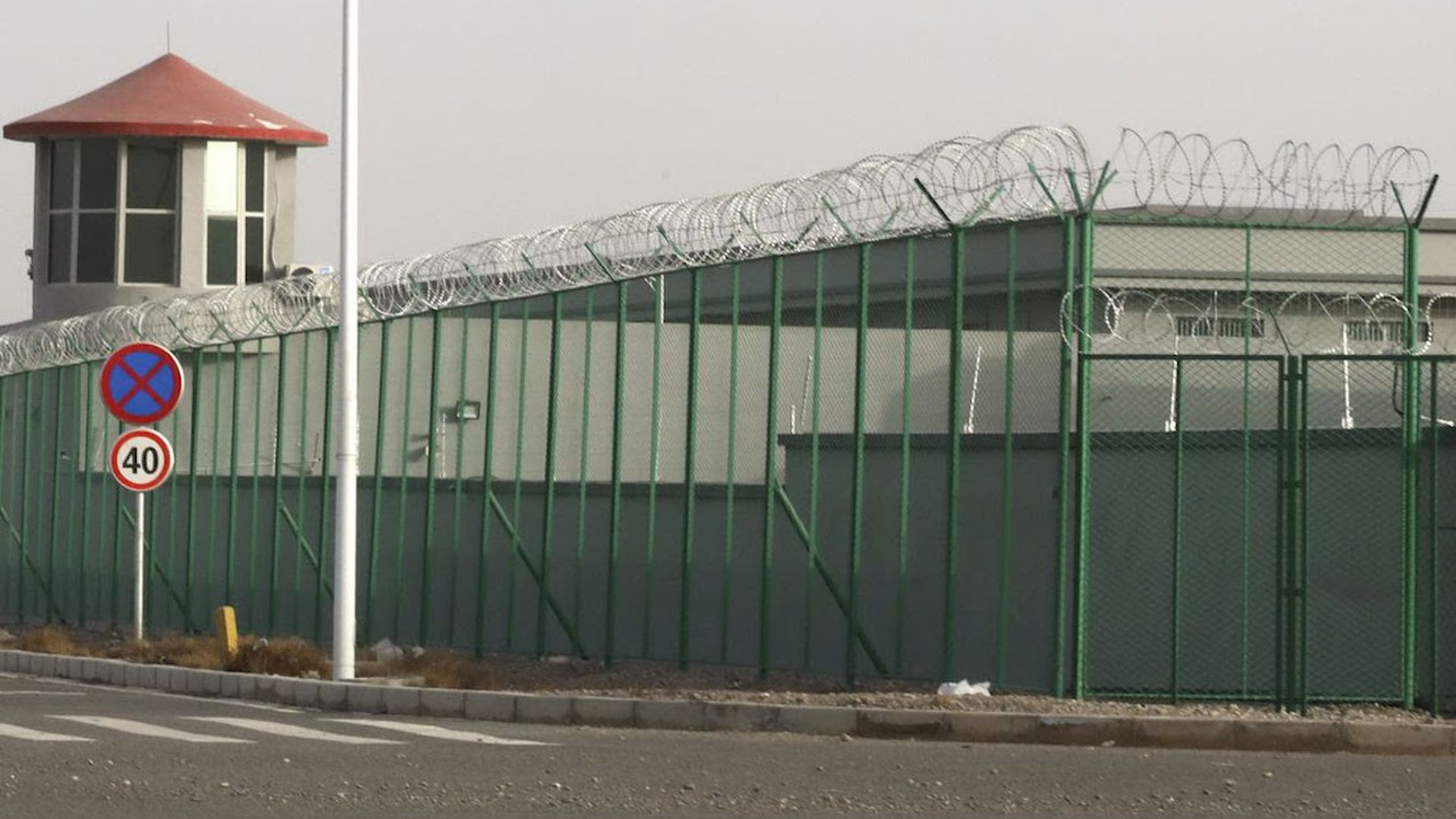Dec 14, 2019 - World
China destroying documents after leaks about Uighur Muslims
Add Axios as your preferred source to
see more of our stories on Google.

A Chinese detention facility in Kunshan Industrial Park in Artux, Xinjiang region. Photo: Ng Han Guan/AP
